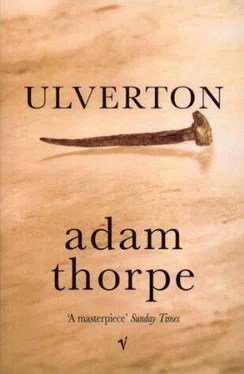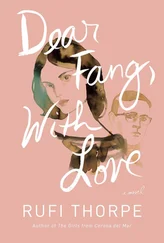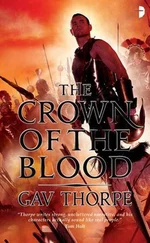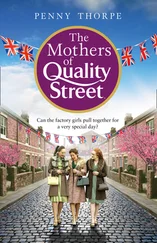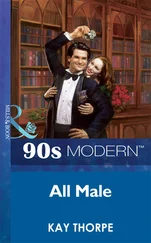Whatever we were thinking, two Important Persons were in no doubt of his intentions: the Vicar, his head on one side, his palms together, was ready to grant his blessing; the Major had come down from the podium and was standing with an equally ready hand extended from a crisp cuff; the Squire, however, was rigid from head to toe. The Sacrificial Lambs watched Cullurne from the corner of their eyes, until Cullurne came to a stop two paces from them, and from the Squire. The crowd were eerily quiet. The whole square appeared suspended in a great silence, into which Cullurne’s voice broke — I was tempted to say like the blows of a blacksmith’s hammer, but it wasn’t like that at all. It was not violent, it was not thrust from him: it seemed to branch as naturally from him, in those soft syllables, as a tree from the earth. I cannot put it into words. Suffice to say that he spoke quietly, as if only to the Squire — but there was not a man or woman in that wide square who did not hear him.
‘I’d rather,’ he said, ‘bide at home.’
The Squire swallowed. His fingers writhed.
‘Stay at home, man?’
The man nodded slowly. There were a few titters in the crowd, and a smock snorted. The cantankerous gent on my left tut-tutted violently.
The Squire lifted his chin still higher.
‘Duty, Cullurne. I would be proud for one of my servants to answer the call of the hour. His country in need. And so on. Duty, Cullurne. Duty.’
The Major’s hand drooped, but did not fall. The Vicar’s mouth puckered into a mew of distaste. My heart, I have to say, was hammering wildly. There was a curious taste of metal in my mouth. The church rang the quarter, thudding its fleet hooves across our temporal defiance. As the echoes washed away, the under-gardener spoke again.
‘I’d rather bide at home, sir. That’s all.’
The crowd’s titters grew into chuckles. The young men in the line shifted from foot to foot, grinning.
‘I see,’ said the Squire. He looked about him, as if for aid. People averted their eyes — myself included. He began to glower. He was grappling with himself; it was painful to watch. It was, in some profound way, embarrassing.
‘Yes. I see. He would rather stay at home. Yes. I see. What? Well, if a man would rather stay at home, then who are we to stop him, what? What? Thank you, Cullurne.’
Bare reportage cannot convey the deep hatred sometimes evinced between men through the simplest address. The words of the Squire were more spat out than spoken. The crowd murmured. Cullurne turned and walked away, and every eye followed his long strides, every heart beat to his steady rhythm — until each step became no more than a faint echo, dwindling to silence through the empty lanes.
Activity broke out again in the square: the crowd began to disperse into small knots, the young men gave their names to a dapper clerk who had suddenly appeared from the side of the crowd, the hoops rattled and a green-liveried automobile roared to a stop outside the Post Office and diverted everyone’s attention. It was the Major’s. When I looked above it, at the eaves, I saw nothing. The house-martin had gone.
It was not I who chose Ulverton as the ‘happy spot’ for my final innings; it was the skein of family connections that pulled me to this place. My wife’s second cousin, Mrs Mary Holland, had lived in the village for almost all her married life; although her husband was long dead by the time I settled here, she was so enamoured of the place in which she had brought up her family, that she had vowed to stay on and not retire, as was the wont then, to a widow’s decline in Weymouth. Our friendship began through tragedy: having lost her darling son, Daniel, to influenza in his first term at Eton in the same year as my own brother was appointed housemaster there, in 1886, relationships were established more closely than would otherwise have been the case, for the stricken mother needed all the support we could give her; mine being of the post-marked variety, until my leave gave us the opportunity to visit her in 1893. I well remember the carriage mounting that last hill north of Ulverton, cresting the bare, nibbled flanks of Frum Down, and giving us all of a sudden that enchanted view of the verdant river, the clustering trees, the black thatch of ancient roofs and the simple grey stone of the church, that bespoke all our exiled dreams, and seemed to embody all our fairest fancies! Apart from the odd straggling copse, and the neat lushness of Ulverton House, all about was naked and desolate, even repellent (how ignorant I was then of the springy exhilaration of our bare downland!) — but this only served to heighten the charms of this remote village. We were stricken by love, and vowed to make this ‘our’ England on the final return from India. Alas, our plans were only half-realised, as it were: dashed by dysentery and death — and sometimes I find the association dreadful in my solitude; Mrs Holland too now lying beside her husband and her son near the Saxon yew of our secluded churchyard, their tombstone recording their allotted spans only a little less mutely than the grassy mounds of the labouring generations, whose stones are as bereft of art as their lives.
When I am depressed in spirits I play Chopin. I am famous for this: my cottage being on the main street, facing the high flint wall of the churchyard, the open windows of summer mean that any passing souls are vexed by my missed notes, or stirred by my harmonies. On that day, that August day fourteen years ago, as the thirty-two young men of Ulverton clambered aboard the bus and waved their proud farewells, and were trotted out of sight, to some distant and unimaginable vista, each dressed as if for a church outing, or a visit to town with their beloveds, I played my heart out. Mrs Holland sat by the window and listened, tears welling in her eyes through the B Minor Sonata, as the cries of the young men sounded in the street, their younger siblings shrieked and whistled, their mothers and fathers waved and kissed and blew their noses, and the bus momentarily darkened the room as it passed.
‘It will only be a small affair,’ said Mrs Holland. ‘My dear husband used to play this.’
I said nothing and played on.
Ulverton had more volunteers than any other village on the downs. The rhetorical flourish with the sabre had played its part, for everyone said how ‘the Squire hev done us proud, then.’ I continued to work shoulder to shoulder with the men he had forbidden to attend the meeting. At least, that is how I interpreted their absence. In the way of things here, no one questioned this privilege, because no one saw it as such; believe it or not, those lucky few with their noses to the chalk were seen as exhibiting extreme unselfishness. They were making their sacrifice for the sake of knowledge and discovery. The talk of treasure-hunts dwindled in the tap-rooms of Ulverton. That healthy air of ruefulness which I had so valued in the English countryman and countrywoman evaporated in those early months of the war: loins were girded, and spines stiffened, and the deadlier face of patriotism shown, in a way I found thoroughly alarming.
There was only one pariah, one Untouchable, in our pastoral haven — and that was Percy Cullurne. ‘Craven’ was the least insulting, and the most printable, of the many qualifications made upon his good name that summer and autumn. He, in his turn, lapsed into near silence, seeming not to feel the sting of the verbal sticks and stones, and the odd scrawled contribution to fellow-feeling upon his cottage door, and the various small missiles aimed at him by the dwarf regiments, goaded on by their zealous parents. It might have turned out otherwise: a hundred years earlier, he would no doubt have been the hero of the hour, carried shoulder-high around a burning rick. But the vans of Socialism, odious though they were, had only trundled ineffectually through our village by 1914: perhaps owing to the memories of the older folk, still vivid, of the terrible results of rebellion, and a general relieving of hardship and poverty, there was little connection made between the ranting from the vans and the famous last words of John Oadam [alias ‘Captain Bedwine’ of the ballads — see The Book of Downland Songs , 1923]; little attempt to relate the tenets of the placarded strangers with the fenced-off woods and the touched cap, that deference as ingrained as the soil in the furrows of their hands.
Читать дальше
